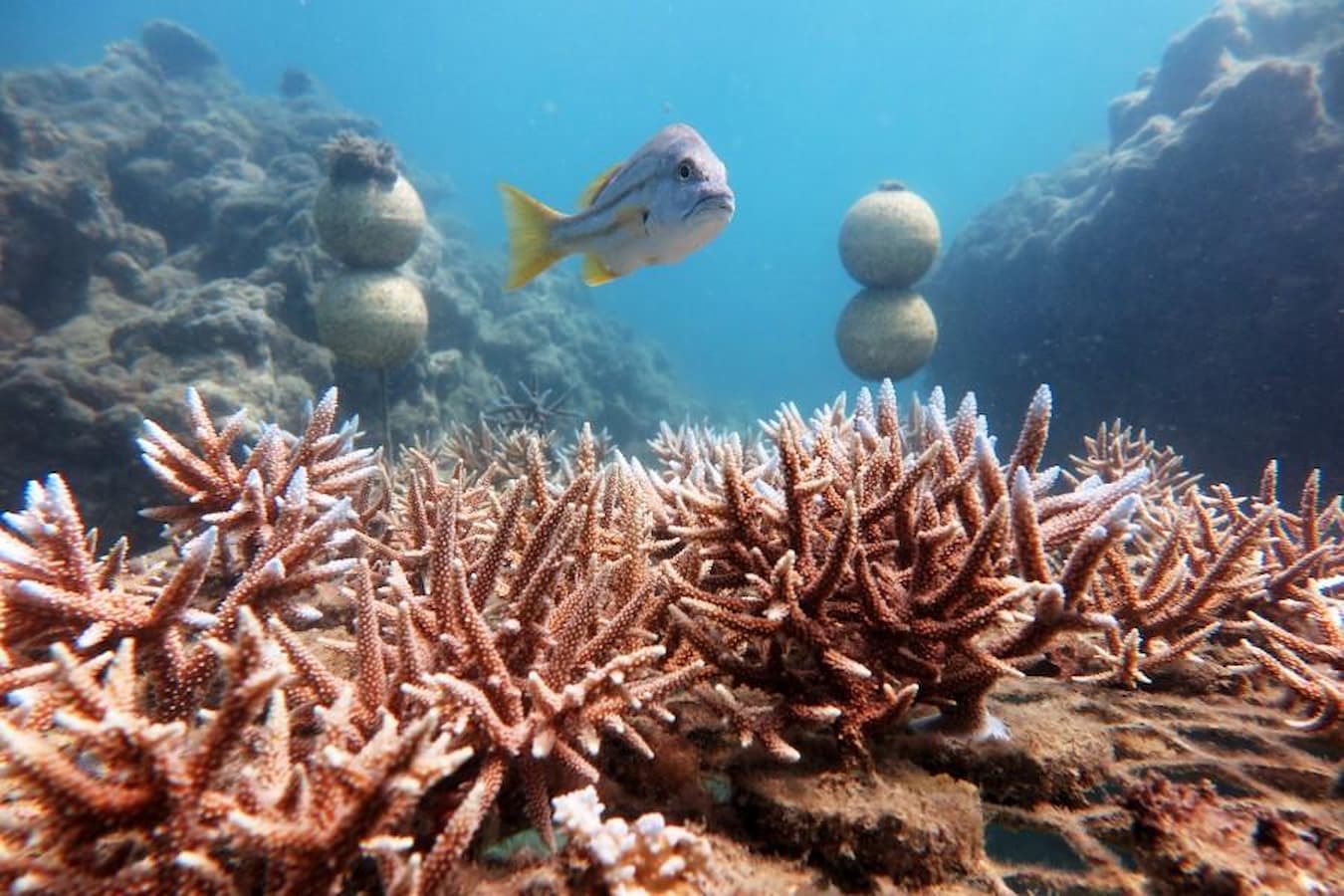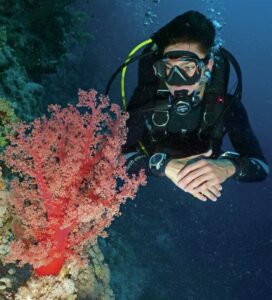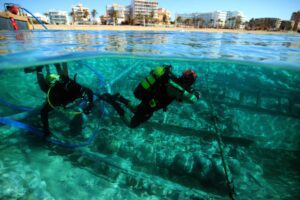The tourism industry is currently the largest employer in the Whitsundays region, accounting for around 40% of all jobs. The Whitsundays region is located at the heart of the Great Barrier Reef with an estimated 86% of tourists that visit the reef doing so from either Cairns or the Whitsundays.
A spokesman for Great Barrier Reef Marine Park Authority, said:
“Unfortunately in the past number of years have seen the Whitsundays inshore reefs under pressure, we believe this pressure is primarily due to issues with suspended sediment, rising water temperatures and a number of Cyclones, in particular cyclone Debbie. Prior to cyclone Debbie the Whitsundays had become Australia’s number one destination for accessing the Great Barrier Reef Marine park.”
“Economically, the destruction of the Whitsundays reef would ultimately mean the destruction of our tourism industry.”
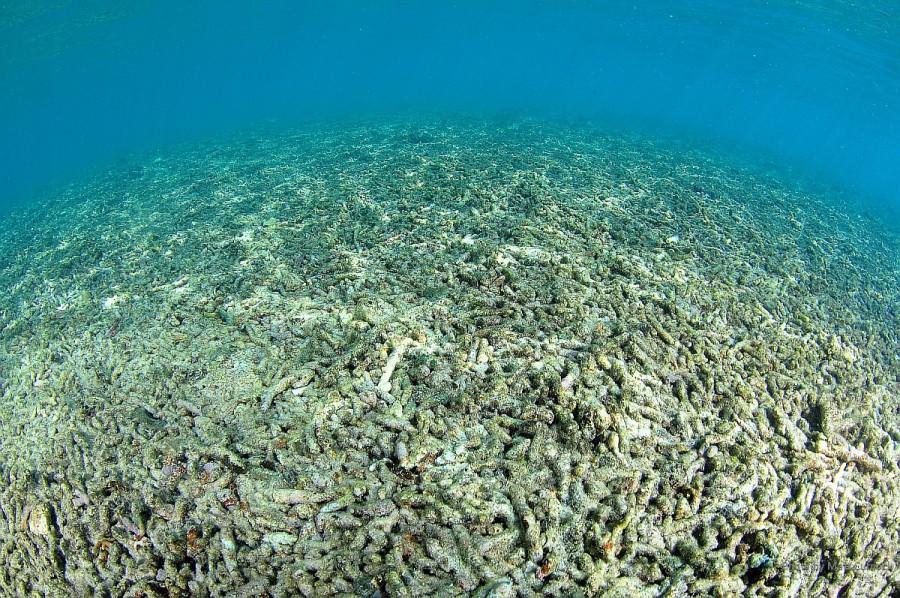
Perhaps as a response to this situation, marine Biologists from Living Reef launched a coral restoration initiative. Coral fragments from dislodged corals or healthy population are grown and cultivated in a semi-controlled environment, such as coral nurseries where they have a better chance of survival. Once they have reached a certain size they are then transplanted onto damaged areas of reef.
A total of 14 coral reef nurseries have been established in Blue Pearl Bay and Manta Ray Bay. A total of 20 coral cookies have been replanted on adjacent degraded bommies.
The Reef Ecologic team determined the survivorship of corals in the nursery and on out planted bommies. The response of corals, both on the nursery and on transplanted bommies, are overwhelming. Approximately 85% of all coral nursery fragments showed a positive response. In addition, coral out plants are looking well-adapted on coral bommies. This could be an early sign of another potential success story unfolding in the reefs of Whitsunday Islands. In a few more years, coral reefs in the region may be able to bounce back to its original state.
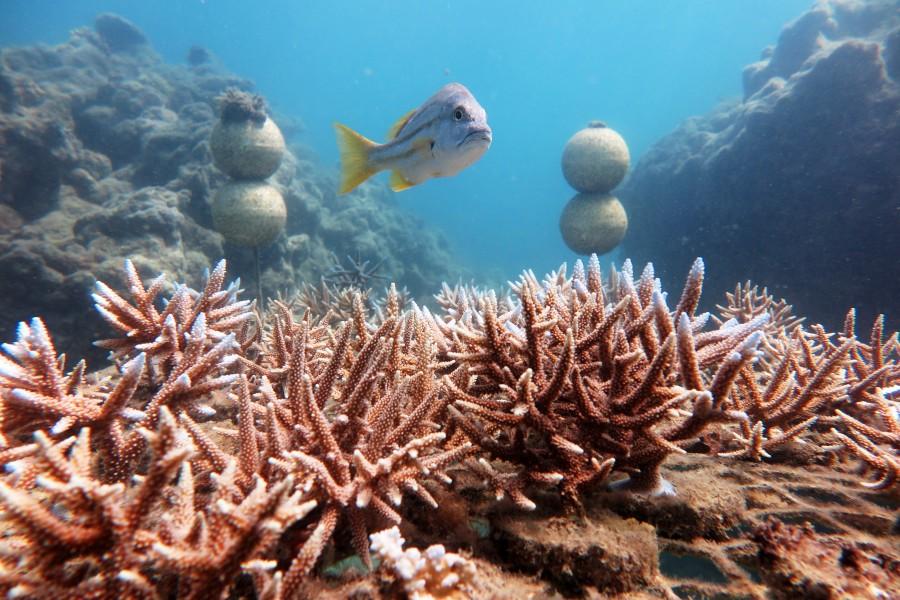
A spokesman for Reef Ecologic, who are assisting the Living reef team in the monitoring and maintenance of the coral gardens said:
“Reef restoration is an emerging field in marine science that is gaining its popularity in recent decades due to global degradation of coral reefs. A lot of reef restoration success stories all across different countries have been reported but there is still a lot to learn in order to improve existing techniques. One of the challenges in reef restoration is the huge role the environment plays in its success. Each environment have different conditions, threats, and stressors making a one-size-fits-all formula non-existent. Reef restoration is not a fix to global reef degradation but rather a catalyst to aid in natural recovery of wide scale reefs.”
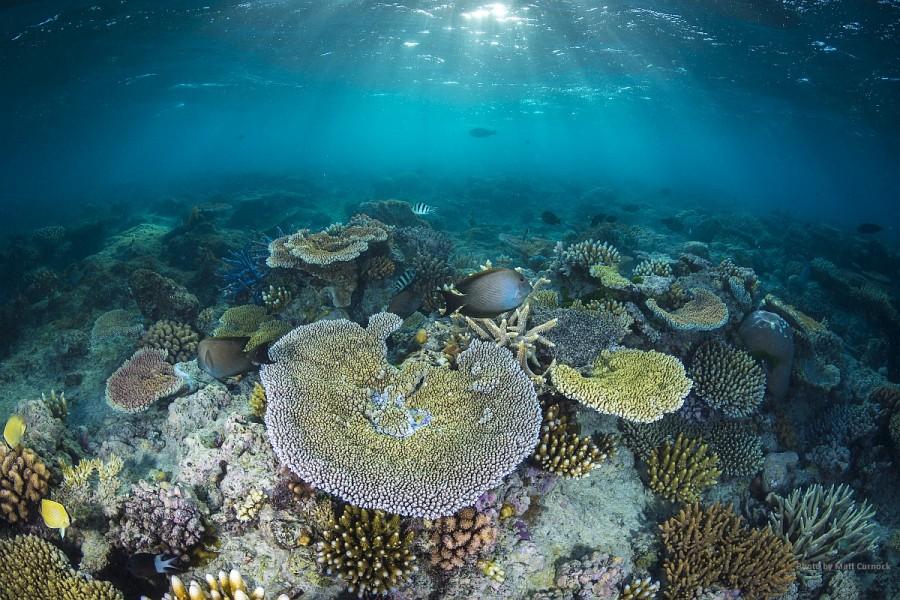
Photo Credit: Reef Ecologic
Photo Credit: Matt Curnock
